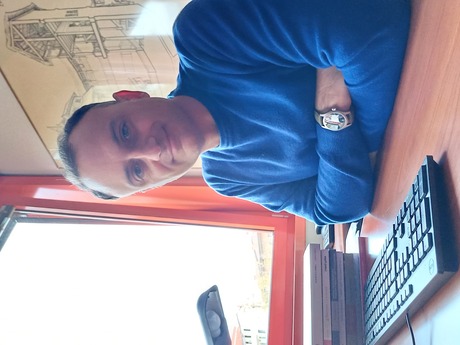Studying at the University of Verona
Here you can find information on the organisational aspects of the Programme, lecture timetables, learning activities and useful contact details for your time at the University, from enrolment to graduation.
Academic calendar
The academic calendar shows the deadlines and scheduled events that are relevant to students, teaching and technical-administrative staff of the University. Public holidays and University closures are also indicated. The academic year normally begins on 1 October each year and ends on 30 September of the following year.
Course calendar
The Academic Calendar sets out the degree programme lecture and exam timetables, as well as the relevant university closure dates..
| Period | From | To |
|---|---|---|
| I semestre (Lingue e letterature straniere) | Sep 26, 2022 | Dec 23, 2022 |
| Annuale (Lingue e letterature straniere) | Sep 26, 2022 | May 27, 2023 |
| II semestre (Lingue e letterature straniere) | Feb 13, 2023 | May 27, 2023 |
| Session | From | To |
|---|---|---|
| ESAMI LINGUE - sessione invernale | Jan 9, 2023 | Feb 11, 2023 |
| ESAMI LINGUE - sessione estiva | May 29, 2023 | Jul 22, 2023 |
| ESAMI LINGUE - sessione autunnale | Aug 28, 2023 | Sep 23, 2023 |
| Session | From | To |
|---|---|---|
| LAUREE LINGUE - sessione autunnale (a.a. 2021-2022) | Nov 7, 2022 | Nov 12, 2022 |
| LAUREE LINGUE - sessione straordinaria (a.a. 2021-2022) | Mar 31, 2023 | Apr 6, 2023 |
| LAUREE LINGUE - sessione estiva (a.a. 2022-2023) | Jul 10, 2023 | Jul 15, 2023 |
Exam calendar
Exam dates and rounds are managed by the relevant Foreign Languages and Literatures Teaching and Student Services Unit.
To view all the exam sessions available, please use the Exam dashboard on ESSE3.
If you forgot your login details or have problems logging in, please contact the relevant IT HelpDesk, or check the login details recovery web page.
Should you have any doubts or questions, please check the Enrollment FAQs
Academic staff
 federica.barboni@univr.it
federica.barboni@univr.it
 francesca.bazzani@univr.it
francesca.bazzani@univr.it
 benedetta.binacchi@univr.it
benedetta.binacchi@univr.it
 elisa.dallarosa@univr.it
elisa.dallarosa@univr.it
 wenwen.huang@univr.it
wenwen.huang@univr.it
 lorenzo.loiudice@univr.it
lorenzo.loiudice@univr.it
 beatrice.melodiafesta@univr.it
beatrice.melodiafesta@univr.it
Morbiato Giacomo
 giacomo.morbiato@univr.it
giacomo.morbiato@univr.it
 neliana.orlandi@univr.it
neliana.orlandi@univr.it
 sara.paolini@univr.it
sara.paolini@univr.it
Study Plan
The Study Plan includes all modules, teaching and learning activities that each student will need to undertake during their time at the University.
Please select your Study Plan based on your enrollment year.
1° Year
| Modules | Credits | TAF | SSD |
|---|
1st foreign language2nd foreign language1st foreign literature and cultureGerman literature and culture 1
Spanish Literature and Culture 1
2nd foreign literature and cultureGerman literature and culture 1
Spanish Literature and Culture 1
2° Year activated in the A.Y. 2023/2024
| Modules | Credits | TAF | SSD |
|---|
1st foreign language2nd foreign language1st foreign literature and culture or a related courseEnglish literature and culture 2
French literature and culture 2
German literature and culture 2
Spanish literature and culture 2
2nd foreign literature and culture or a related courseEnglish literature and culture 2
French literature and culture 2
German literature and culture 2
Spanish literature and culture 2
Geography of communication and international trade
Italian literature and culture
Modern and Contemporary Economic History
Theory and Techniques of communication
3° Year It will be activated in the A.Y. 2024/2025
| Modules | Credits | TAF | SSD |
|---|
1st foreign language2nd foreign languageComparative and European Public law
Principles of international marketing
| Modules | Credits | TAF | SSD |
|---|
1st foreign language2nd foreign language1st foreign literature and cultureGerman literature and culture 1
Spanish Literature and Culture 1
2nd foreign literature and cultureGerman literature and culture 1
Spanish Literature and Culture 1
| Modules | Credits | TAF | SSD |
|---|
1st foreign language2nd foreign language1st foreign literature and culture or a related courseEnglish literature and culture 2
French literature and culture 2
German literature and culture 2
Spanish literature and culture 2
2nd foreign literature and culture or a related courseEnglish literature and culture 2
French literature and culture 2
German literature and culture 2
Spanish literature and culture 2
Geography of communication and international trade
Italian literature and culture
Modern and Contemporary Economic History
Theory and Techniques of communication
| Modules | Credits | TAF | SSD |
|---|
1st foreign language2nd foreign languageComparative and European Public law
Principles of international marketing
| Modules | Credits | TAF | SSD |
|---|
Legend | Type of training activity (TTA)
TAF (Type of Educational Activity) All courses and activities are classified into different types of educational activities, indicated by a letter.
Spanish literature and culture 2 [CInt] (2023/2024)
Teaching code
4S002908
Academic staff
Coordinator
Credits
9
Language
Spanish
Scientific Disciplinary Sector (SSD)
L-LIN/05 - SPANISH LITERATURE
Period
I semestre (Lingue e letterature straniere) dal Sep 25, 2023 al Dec 22, 2023.
Courses Single
Authorized
Learning objectives
The course aims at providing students of the Bachelor's degree in Languages and Cultures for Tourism and International Commerce with an adequate knowledge of the Spanish culture of different periods, focusing on its literary, historical, geographical and anthropological aspects. At the end of the course, students will acquire a sound knowledge of the issues covered by the module (historical and cultural context, main writers/texts/movements/genres of the period examined). With regard to the applied and communication skills, students will be able to critically comment the primary texts listed in the syllabus, in relation both to their historical and cultural context and literary specificities, as well as to express the acquired knowlegde in a clear and consistent way.
Prerequisites and basic notions
See the regulations of study
Program
(30-hour module) The Spanish theater of the Golden Ages: from 'corrales de comedias' to theater festivals. Historical-cultural profile of seventeenth-century Spain. The course will deal with the culture and literature of the Golden Ages, deepening the theater and its topicality (also commercial). Planned topics: - historical context - cultural context - brief history of theater - medieval theatre, humanistic comedy, comedia nueva Teaching methods: teaching will be held in Spanish through frontal teaching, case studies and e-learning. The teaching will be active on the university's e-learning platform, where some mandatory content will be uploaded (lesson texts, handouts, etc.) and optional in-depth materials. The program is also valid for non-attending students who, however, are strongly advised to contact the teacher during office hours). Students are required to know the physical and political geography of the Iberian peninsula (which will be verified in the exam).
Module 2: Women in Spanish Golden Age. Reading and commentary of Lope de Vega, La viuda valenciana
Bibliography
Didactic methods
Presential classes, the supplementary didactic material will be made available to students using the usual methods. Unless otherwise indicated by the national and university gouvernement the recording of the lessons is not foreseen.
Learning assessment procedures
An oral exam in Spanish will assess:
- a knowledge of primary and secondary texts
- the ability to articulate effectively the information and critical assessments concerning texts and topics discussed in class
At the beginning of the course we will consider the possibility of a written test (multiple choice). Only students who attend the course will be allowed to take the test, which will represent a part of the whole exam.
Evaluation criteria
The historical-geographical, historical-literary knowledge, the ability to analyze and interpret the literary text, the property of language and the exhibition skills will be evaluated.
Criteria for the composition of the final grade
Unique: 30/30, exam passed starting from 18/30
Exam language
spagnolo (italiano per la bibliografia in italiano)
Type D and Type F activities
Nei piani didattici di ciascun Corso di studio è previsto l’obbligo di conseguire un certo numero di CFU di tipologia D e di tipologia F.
CFU D (attività a scelta dello studente)
I CFU D possono essere acquisiti mediante:
- insegnamenti non obbligatori nel proprio piano didattico (previa approvazione del Presidente del Collegio didattico per insegnamenti non selezionabili in autonomia)
- attività accreditate dal Collegio didattico
- competenze linguistiche (diverse o ulteriori) rispetto a quelle obbligatorie
- tirocini o stage
- TALC (competenze trasversali).
Competenze trasversali TALC
Nota bene: i corsi TALC sono riconosciuti solo come CFU D.
Il numero di CFU D va calcolato complessivamente sull’intero triennio/biennio e non è legato all'annualità.
CFU F
I CFU F sono solitamente relativi ad abilità informatiche, competenze linguistiche, stage e tirocini e ulteriori attività formative accreditate in questa tipologia dal Collegio Didattico.
Nel corso di laurea in Lingue e culture per il turismo e il commercio internazionale sono previste le seguenti tipologie:
- 3 CFU per terza lingua (livello B1)
- 3 CFU per informatica
- 6 CFU per stage obbligatorio.
Le competenze informatiche possono essere acquisite attraverso:
- il superamento della prova pratica presso le aule informatiche di Ateneo,
- la frequenza dei corsi attivati da scuole e centri accreditati dall’AICA (Associazione Italiana per l’Informatica e il Calcolo Automatico) o riconosciuti dalla Provincia e dalla Regione e superamento della relativa prova finale. Le domande per il riconoscimento delle competenze informatiche acquisite precedentemente vengono esaminate dalla Commissione per il riconoscimento delle Competenze Informatiche.
Le attività di stage sono finalizzate a far acquisire allo studente una conoscenza diretta in settori di particolare utilità per l’inserimento nel mondo del lavoro e per l’acquisizione di abilità specifiche d’interesse professionale.
To discover all the teaching activities accredited by the foreign teaching college click here
Career prospects
Module/Programme news
News for students
There you will find information, resources and services useful during your time at the University (Student’s exam record, your study plan on ESSE3, Distance Learning courses, university email account, office forms, administrative procedures, etc.). You can log into MyUnivr with your GIA login details: only in this way will you be able to receive notification of all the notices from your teachers and your secretariat via email and soon also via the Univr app.
Student login and resources
Gestione carriere
Assegnazione tutore
Attività accreditate D/F
Calendario didattico dettagliato
Cambio lingua curriculare
Competenze informatiche
Competenze linguistiche (prima e seconda lingua)
Competenze linguistiche in triennale (terza lingua CFU F)
Compilazione del piano didattico
Corso di Lingua portoghese
Erasmus+ e altre esperienze all'estero
Linguistic training CLA
Presentazione dei corsi di studio e Open day
Graduation
List of theses and work experience proposals
| Stage | Research area |
|---|---|
| PROGETTO MAMBRINO Stage per bibliografia | Various topics |
Saperi minimi
Stage e tirocini
Nel piano didattico della laurea triennale in Lingue per il turismo e il commercio internazionale (L12) è previsto un periodo di stage obbligatorio (CFU 6) in organizzazioni imprenditoriali.
Le attività di stage sono finalizzate a far acquisire allo studente una conoscenza diretta in settori di particolare interesse per l’inserimento nel mondo del lavoro e per l’acquisizione di abilità professionali specifiche.
Le attività di stage sono svolte sotto la diretta responsabilità di un singolo docente presso studi professionali, enti della pubblica amministrazione, aziende accreditate dall’Ateneo veronese.
I crediti maturati in seguito ad attività di stage saranno attribuiti secondo quanto disposto nel dettaglio dal “Regolamento d’Ateneo per il riconoscimento dei crediti maturati negli stage universitari” vigente.
- Tutte le informazioni in merito agli stage per futuri studenti sono disponibili alla pagina Stage e tirocini.
- Tutte le informazioni in merito agli stage per studenti iscritti sono pubblicate in MyUnivr - come fare per - stage e tirocini.
- Tutte le informazioni in merito agli stage per le aziende sono disponili alla pagina Stage e tirocini per azienze.
Ulteriori informazioni al seguente link https://www.univr.it/it/i-nostri-servizi/gestione-carriere-studenti-lingue-e-letterature-straniere/stage-e-tirocini-lingue-e-letterature-straniere

 +39 045802 8409
+39 045802 8409



























































